The platform offers a popular alternative to traditional hotels, but could Airbnb be ruining neighbourhoods? Read on for our opinion on why Airbnb is ruining neighbourhoods.
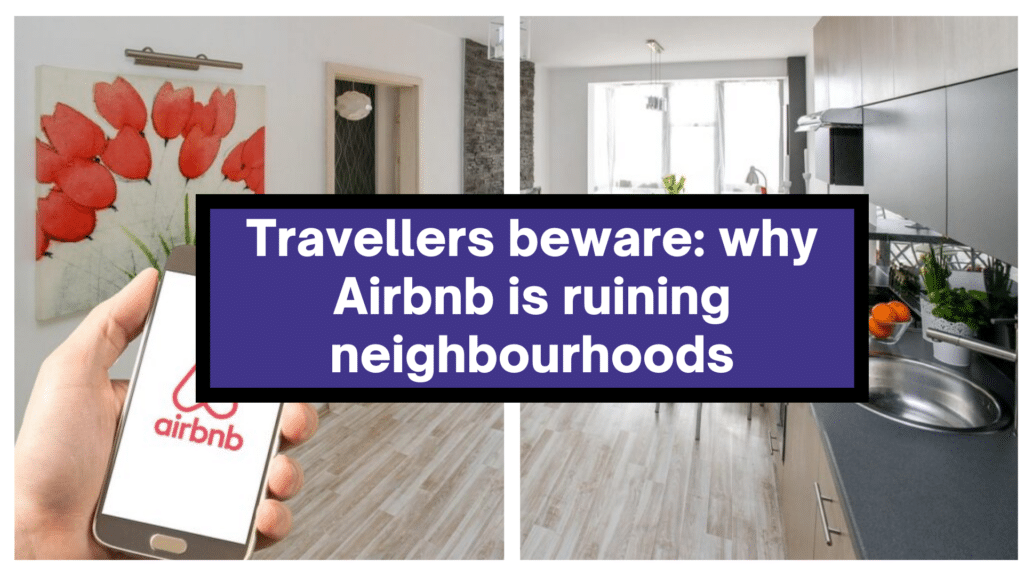
Its appeal to both hosts and guests is apparent. Hosts can supplement their income by renting space to travellers who would rather feel closer to the city than is possible in hotels.
But with short-term rental properties causing a spike in residential rent, could Airbnb be ruining your neighbourhood?
What is Airbnb? – short- and long-term holiday rentals
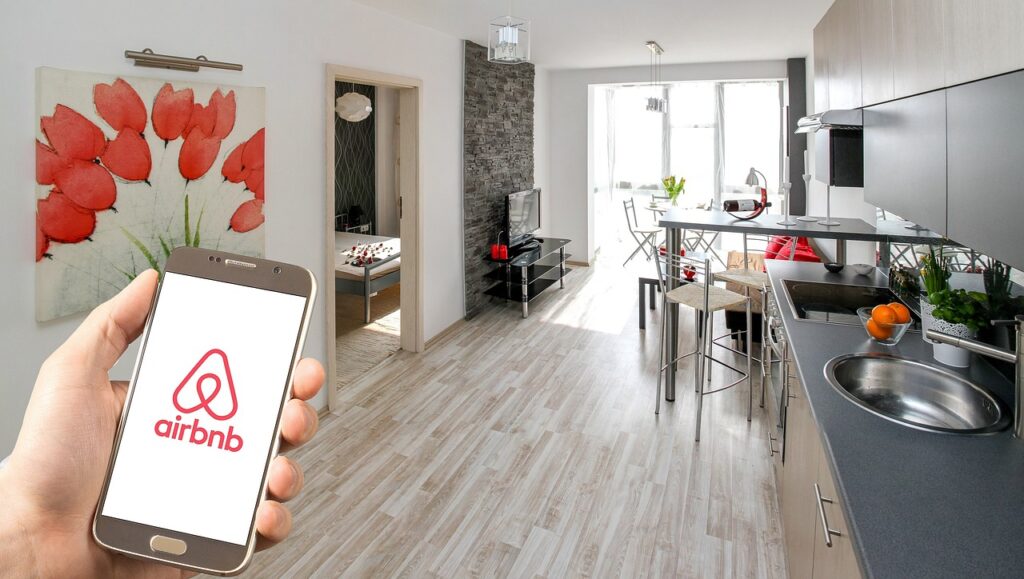
Airbnb was started by businessmen Brian Chesky and Joe Gebbia in 2008 to offer short-term rental accommodation as an alternative to San Francisco’s saturated hotel market.
The company acts as a broker for hosts to rent out entire homes, rooms, and even such unique accommodations as castles and treehouses.
It has grown exponentially in its 16-year history. According to Search Logistics, Airbnb facilitates the renting of over seven million active listings for more than five million hosts across 100,000 cities worldwide.
Over 150 million users have made over 1.5 billion stays to date.
Why is it so popular? – what is the appeal of Airbnb?
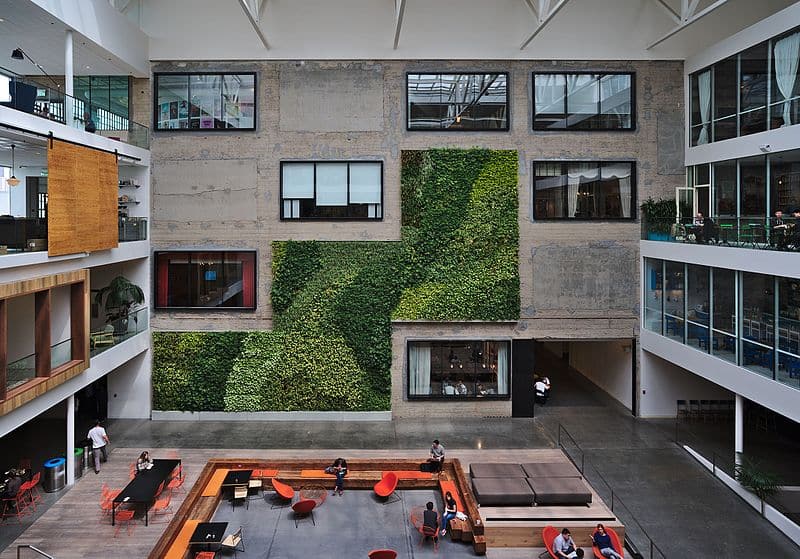
Its appeal to hosts is obvious – make use of space for profit. But what makes Airbnb so popular among travellers?
In its early days, Airbnb was often the cheapest option, with the cost per night normally substantially cheaper than that of a hotel. This may not be the case any longer due to factors like inflation, but Airbnb still benefits from this reputation.
While the difference in overall price may have diminished in recent years, an Airbnb stay can still work out much cheaper than a hotel stay when you consider the facilities on hand.
For example, if you have access to a kitchen when you travel, you can save money on food by having home-cooked meals during your stay rather than forking out on restaurants or room service.
While sampling local cuisine is one of the best things about travelling, we understand the need to tighten the purse strings from time to time. Another part of the Airbnb allure is the ‘fantasy’ element of the living conditions.
Renting an urban apartment rather than a hotel allows the guest to feel part of the city rather than simply a visitor. This feeling is achieved through things like meeting locals – neighbours and, of course, the host – and exploring areas that are not traditionally touristy.
But could this type of travelling actually harm those same neighbourhoods?
Housing crisis – lack of rooms and exorbitant rent
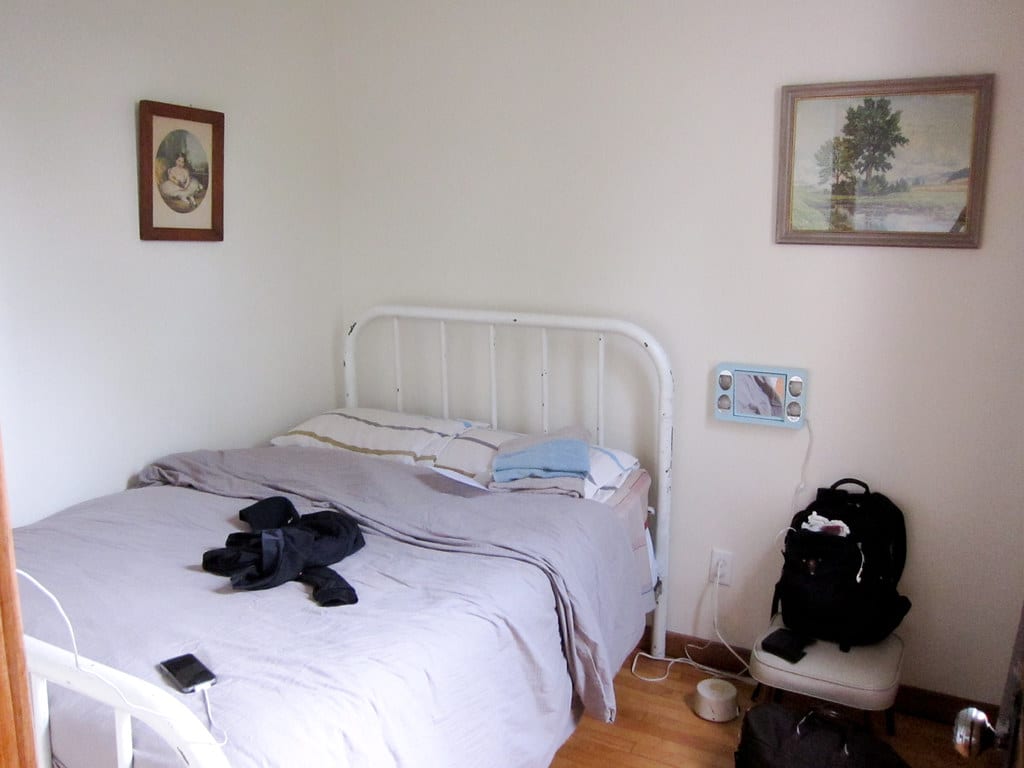
People with a room, or even an entire apartment, to spare stand to make much more money from Airbnb than they would by renting that property out to local residents.
In fact, one New York study found that Airbnb listings earned two to three times more than the median long-term rent in Manhattan’s Lower East Side. So, property owners with dollar signs in their eyes might sway toward Airbnb.
The obvious downside is that local housing becomes scarcer, creating, or at least exacerbating, a housing crisis and driving residents out of the neighbourhood, or worse, out onto the street.
Although Airbnbs make up just a small percentage of all available housing in a given city, they often represent a sizeable portion of living spaces in a given neighbourhood.
A 2015 study points to Barcelona’s Old Town. Almost ten percent of all homes in the area were listed on Airbnb, with 16.8% of housing in the Old Town’s Gothic Quarter also appearing on the site – a substantial number of properties made unavailable to locals.
Disruptions to everyday life – why Airbnb is ruining neighbourhoods
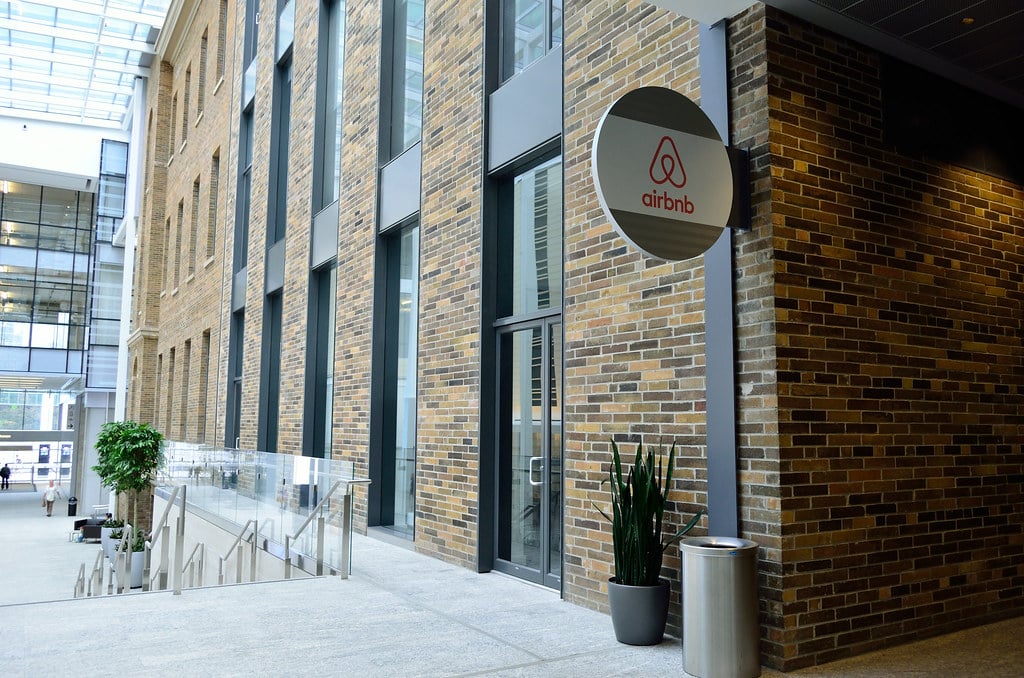
A less obvious but just as detrimental effect of Airbnb on neighbourhoods is disruptions to residents’ everyday lives. These disruptions can include noise or even more subtle problems like local parking congestion.
Agustín Cocola-Gant’s aforementioned study interviewed 40 Barcelona residents who spoke of issues like tenant expulsion, harassment, and daily disruptions caused by Airbnb.
The most obvious example of this is parties. Visitors on holiday needn’t worry about work tomorrow morning, but it remains a very real prospect for the building’s residents. Though Airbnb has recently cracked down on parties, enforcement is difficult.
What’s being done about it? – tackling Airbnb’s adverse effects
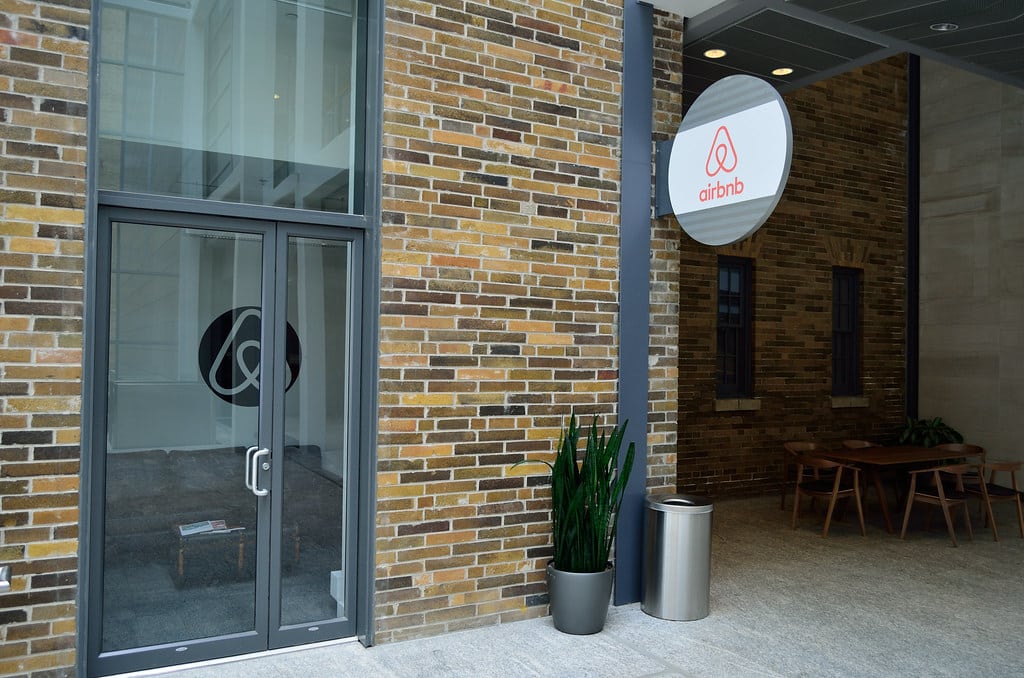
Local governments have thankfully taken action against Airbnb and its detrimental effect on local neighbourhoods.
Indeed, just last year, New York passed Local Law 18 to crack down on the platform that local politician Christian Klossner described as “a tool for landlords that don’t want to be landlords.”
The law prohibits short-term rentals unless the host is present in the property. It also requires hosts to obtain licenses so the city can better regulate their rentals. Similar restrictions exist in other US cities, including Boston, Chicago, Los Angeles, and San Francisco.
Similar laws exist across the world. In London, short-term rentals for whole homes are limited to 90 days a year; in Amsterdam, 60 days; in Paris, 120 days; and in Tokyo, 180 days. In Berlin, landlords need a permit to rent their residence for a short period.
READ MORE: Top ten travel essentials for hostel hopping

